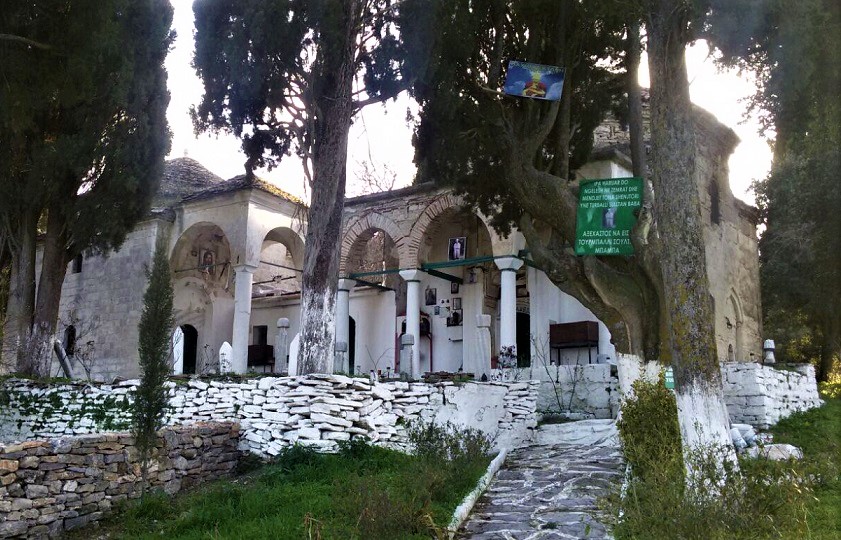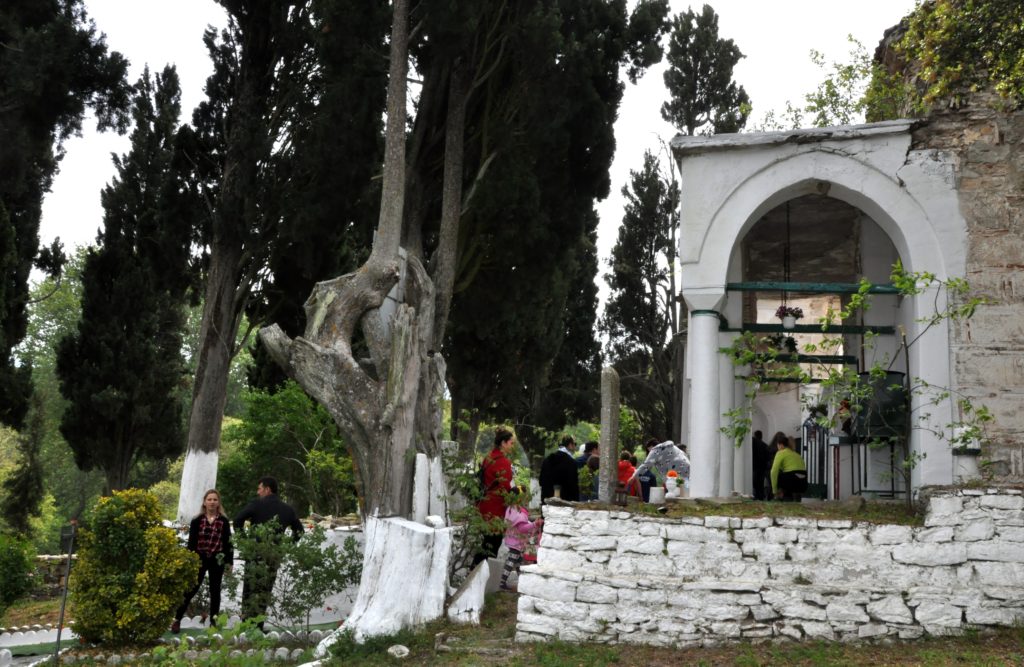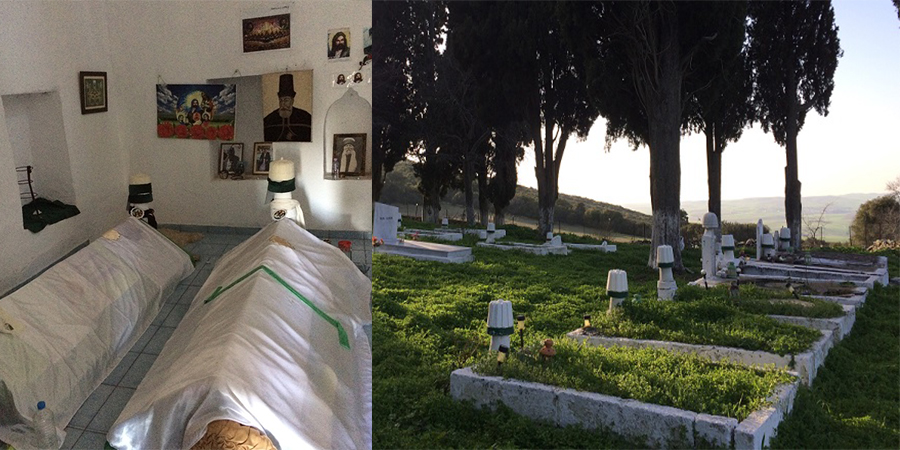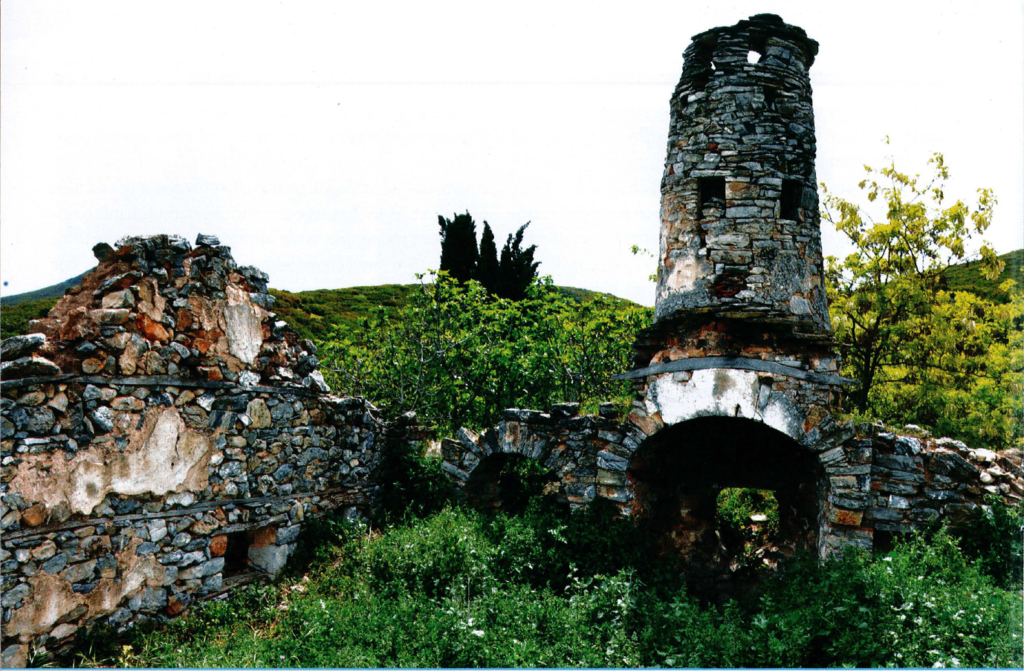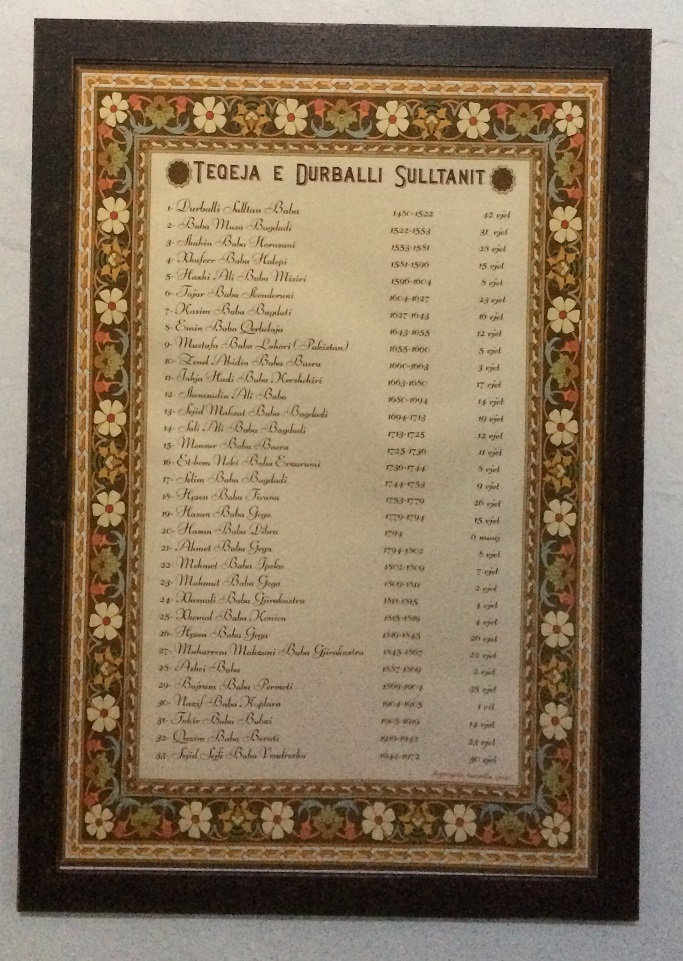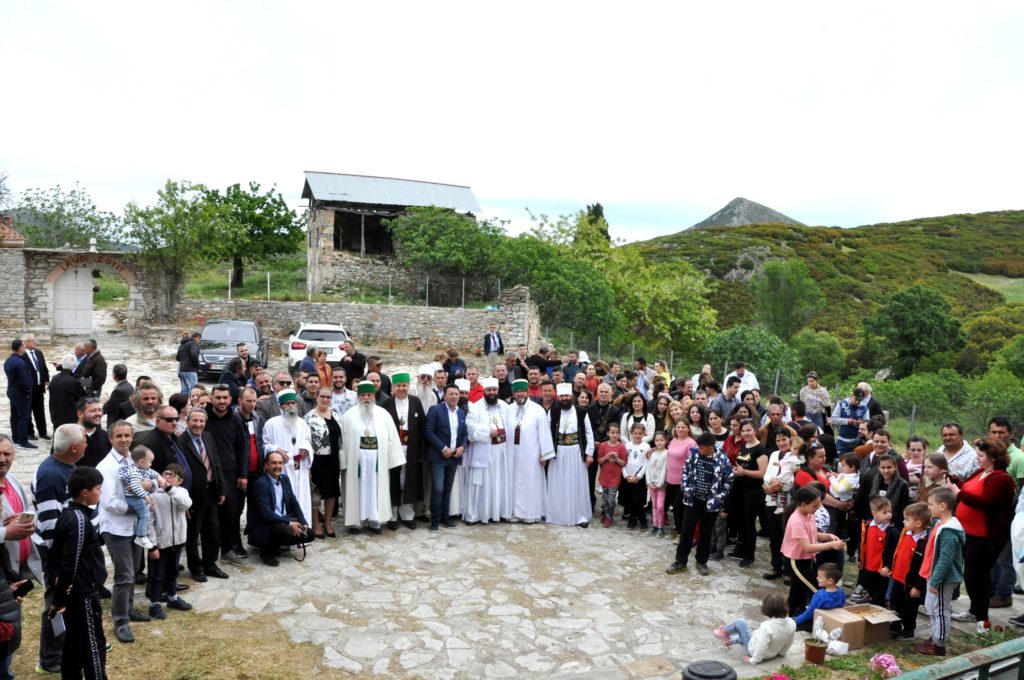
Tekke of “Durballi Sultan”
The “Durballi Sultan” tekke in Volos, Greece, is one of the Bektashi buildings with a special history of the 800-year-old path of Bektashism. Here is a brief summary of the history of this tekke: Durballi Sultan tekke in the village of Asprogeias (Ireni). Far from the town of Farsala 28 km, from Larissa (prefecture) 72 km, and from Volos, 38 km. It is built on the top of a round hill, where there is a special beauty, one of the most beautiful of the province, a miracle, with buildings and incomparable nature. It is surrounded by the Halkodonius Mountains with the village of Rigeo (Ajvali) and on the other side where are the ends of the mountain Kasidhiaris of Fasala, is the station Rigeos, and 2 km further is the village of Asprogeia (Ireni), or today they call it, the tekke in Rini. main with eastern entrance, built on the edge of the gorge, is an architectural complex diversified with separate buildings and at the entrance of the complex, there is built an old fountain and in front of it with old centuries-old planks. The central space of the tekke shares with the walls of the cemetery, the shrine, places for living, for hospitality, prayer rooms, ovens and kitchens. The tekke at the time of its flowering had ownership over two whole villages, the Arduan manor (Eleftherohori of Volos) and Irene (Asprogeia of Farsala), a total area of 32,000 dynyms. He kept 300-400 small cattle.
This tekke was closed for the last time on November, 30.1972, where father Seit Koka from Vëndresha of Skrapari passed away. Father Seiti, the believers of the area have known him as a popular man, who spoke kindly to all; was a true benefactor of the province. The scholar from the Volos region, Georgios Thomas, writes about father Seiti: The last Albanian of the tekke to lead him on a visit in the 1960s, to accompany him and bring him here and there with the green bow and the taxh, with the hyacinth of India in hand, it was the honor of some biblical figures to wander in the old buildings’. Father Seiti tells Georgos: “As you say, my good man, humanity and childhood lived in this ruin, especially the dervishes, two hundred years such people at that time. Leave a Christian traveler out? Never, ever. What does Albanian or Greek mean, Christian or Muslim? Amin, are we not all men of God? There is a God, to Him you pray, to Him we also pray. Did not Christ say ‘Love one another’?
Father Qazimi was revered throughout the area (1920-1942), because the inhabitants had felt his helping hand for their families. But the tragic end, was, when in the spring of 1942, when the Italian battalion passed; captured and executed because they had information that he was participating in the resistance of the people. Talking about father Seit Koka, one will know a little about the history of the famous Durballi Sultan tekke, founded in 1480 in Farsalla, Greece. Durballi Sultan, this missionary was sent by Seyid Ali Sultan, of the Dimoteka tekke in Bulgaria. Durballi Sultan founded the tekke and made it famous not only in the Balkans but also in the world. He ran the tekke for 42 years, until 1552.
He is known as the famous father for a great activity and has been a great saint. Believers of the area and the entire population in this area still talk about this wonderful saint. The tekke consists of two spatial units: the shrine and the main temple. In the area of the shrine are the tombs of dervishes and on the west side two tombs where the parents (fathers) are buried. The main space of the tekke consists of various constructions: living space, hospitality, worship, as well as ovens, kitchens according to the architectural concept of the World Center of Bektashism in Nevshehir, Turkey, today Haxhi Bektash.
Of special interest from an architectural point of view, is the ruined building on the east side and other constructions that give this rare complex a special charm. Durballi Sultan was also a great mystic for this shows a poem made for him by father Abedin Leskoviku: Aman! Ja Durballi-Un’ jam kull te ty,/ Qerem ja Mahzuni- ja nurler nuri/ Sulltan Sejd Ali-Sërri Bektashi,/ Je soj Pejkamberi-Je Rum Serveri/ Qeramete shumë-i derdhe si kumnë…!
